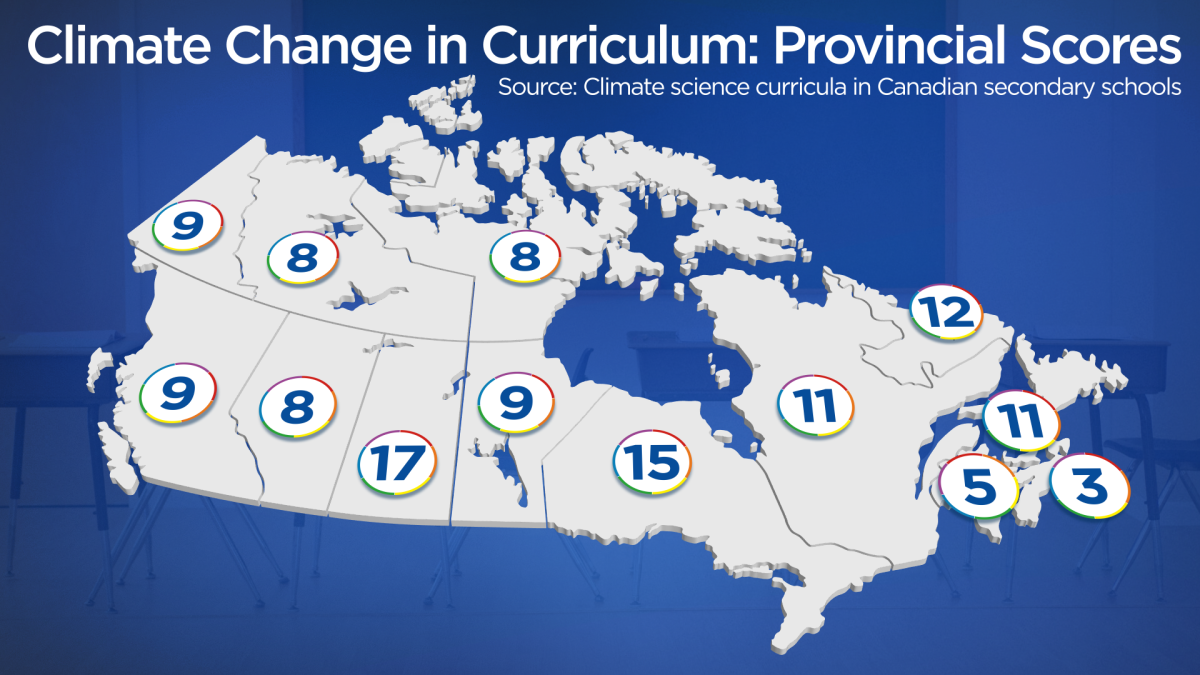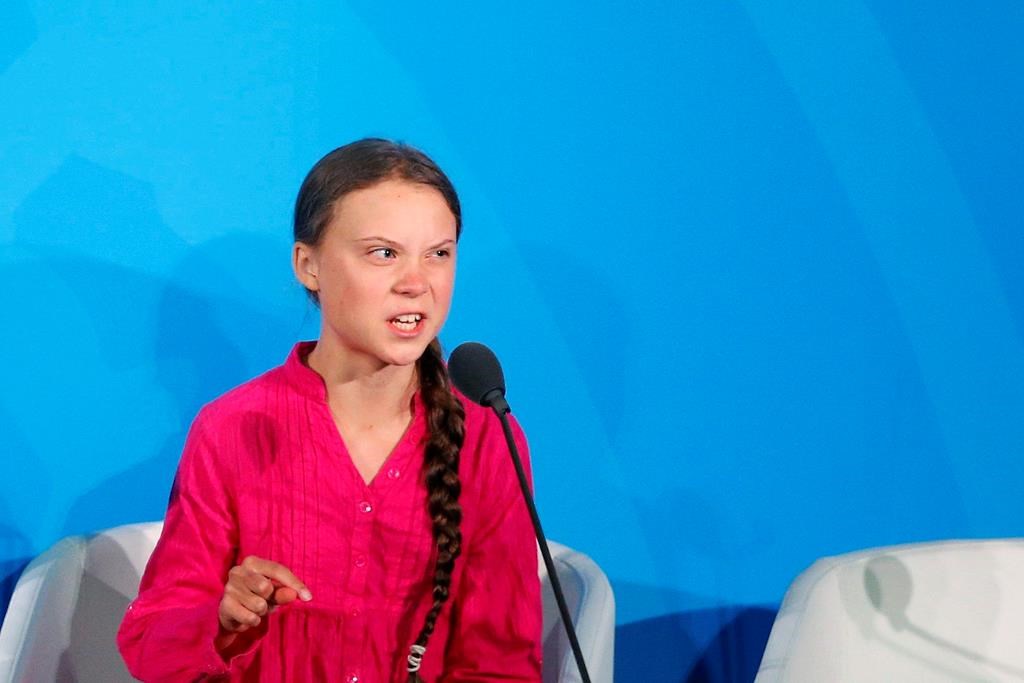A recent study found climate change in Canadian science curricula is not providing students with updated information on scientific consensus, consequences and actual solutions.

Lauren Elliot, a teacher from Alberta, says she is trying to give students the best education available but that she and some other teachers are frustrated by what she calls a lack of resources.
“I just don’t think that’s acceptable at this point,” Elliot said. “Like, this needs to be a conversation that we have in every class.
“These are super important things and kids want to learn about it.”
Teachers aren’t the only one left frustrated, some students also say they are feeling left behind.
“In Science 10, we had a brief introduction to what it (climate change) was but my peers didn’t really understand or get a full, in-depth understanding of the actual crisis itself,” said Neha Pattar, a Grade 11 student in Calgary.
There are indication that climate change is a concern for the very generation that will be impacted most. On Sept. 20, Calgary and Edmonton students took part in worldwide strikes for climate action.
WATCH BELOW: Videos of students joining worldwide climate change protests to demand more action on climate change.
The study
Seth Wynes is a climate change researcher at the University of British Columbia and released his study in July 2019. He found that climate science curricula in Canadian secondary schools focus on human warming, not scientific consensus, impacts or solutions.
“There’s a lot of misinformation on the internet, which is one of the reasons that we need to make sure we’re providing information that is up to date and in accordance with the latest scientific understandings,” Wynes said.
The study finds that climate change education in Canadian secondary schools is not consistent with scientific understanding.

Get breaking National news
It breaks down how each province covered climate change in classrooms based on six core topics and whether they were mandatory, not mandatory, optional or not covered at all.
Six core topics:
- It’s climate: well-established physical principles
- It’s warming: average global temperatures continue to increase
- It’s us: humans are the main cause
- Experts agree: overwhelming scientific backing
- It’s bad: more frequent extreme weather events, sea level rising, extinction rates will accelerate
- We can fix it: actions to avoid the worst outcomes
Ontario and Saskatchewan ranked the best at providing the most thorough climate change education. The Maritimes scored the lowest and Alberta was right in the middle.
Of the six topics mentioned above, “it’s climate,” “it’s warming,” “it’s us” and “it’s bad” are considered not mandatory in Alberta classrooms.
The other two, “experts agree” and “we can fix it,” aren’t covered at all.
Wynes said that as climate change becomes more and more of an issue, it’s going to to become a big part of the lives of the younger generation.
“The people who are in schools, learning about this subject, need to be well-equipped to understand the issue that’s affecting them and they need to be scientifically literate,” he said.
“If students have a good understanding of climate change, they will help push our country into a direction where we’re both able to adapt to climate change and able to prevent it as much as possible.”
What can be done
Alberta Education said they have an independent team reviewing the entire curriculum and are expecting those results in December.
However, changing the curriculum takes time, so experts have some suggestions for how teachers and parents can approach the subject in the meantime.
“It may be helpful to pair the facts with information around current solutions as this approach may provide children with a sense of control, which aids in decreasing anxiety,” said Joyce Achtnig, a psychologist.
“It can be empowering and inspire children; we want to inspire them, not scare them.”
Environmental activist Greta Thunberg, of Sweden, addresses the Climate Action Summit in the United Nations General Assembly, at U.N. headquarters, Monday, Sept. 23, 2019. (AP Photo/Jason DeCrow)
Achtnig suggests the following key things to keep in mind when discussing climate change with children:
- Stick to a scientific approach and provide facts, research and sources.
- Focus on proactive plans and responses to combat climate change as opposed to relaying gloom and doom.
- Have young children identify one action they can personally take to contribute to a healthier environment and share that with their family.
- Be open and honest when your child asks you questions about what they’re learning at school, but keep the message and delivery age appropriate.
- Be sensitive to their feelings and concerns. Allow your child to explain their perspective, including their worries and anxieties. Listen to and validate their concerns.
- It’s OK to communicate the impact of not taking care of our planet and the profound and positive impact one young person can have (e.g. Greta Thunberg).
















Comments
Want to discuss? Please read our Commenting Policy first.